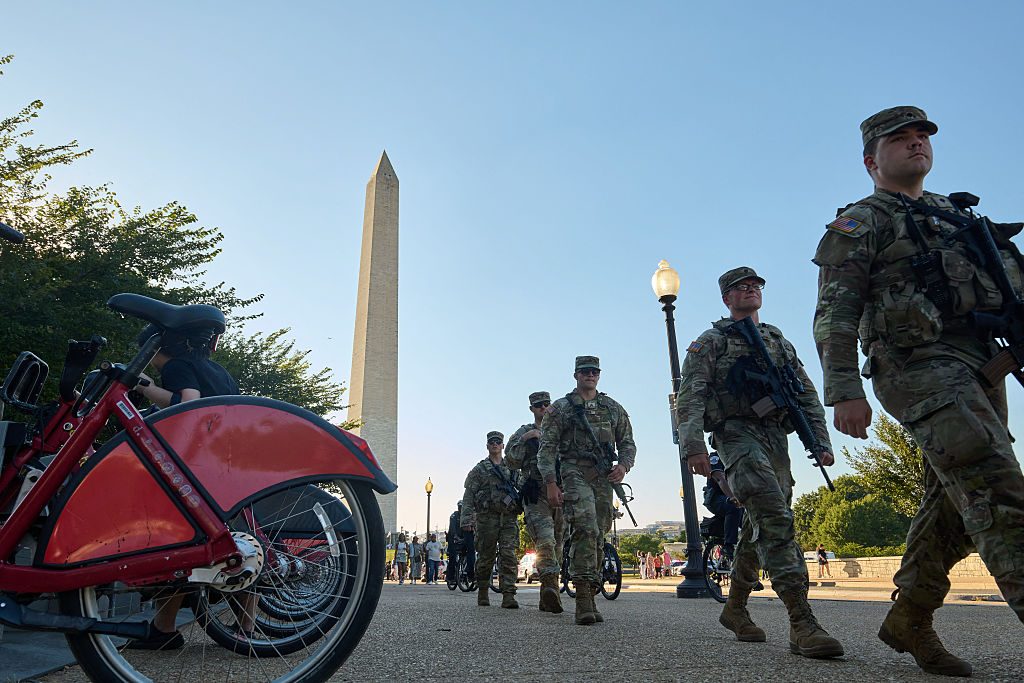Over the last few months, President Trump has deployed the National Guard to Los Angeles and Washington, DC, to crack down on crime and unrest in the cities, and he has subsequently threatened to do the same in other big cities as well. Just last week, he took to Truth Social to go after a new target, Chicago, writing: “I will solve the crime problem fast, just like I did in DC. Chicago will be safe again, & soon.” He also called out the state’s Democratic Governor, JB Pritzker, saying he “needs help badly, he just doesn’t know it yet”.
Like other Democratic critics of Trump’s moves, Pritzker responded with a familiar refrain: that the statistics show crime in these cities isn’t as bad as Trump says it is. He decried Trump’s threats to deploy the Guard in Illinois as a “dangerous power grab”. These sentiments echo other national party figures. Senate Majority Leader Chuck Schumer has called Trump’s deployment of the National Guard “dangerously authoritarian”. Democratic House Minority Leader Hakeem Jeffries and former presidential nominee Hillary Clinton both touted that violent crime in DC was at a 30-year low.
Democrats and others may have reasonable unease about the scope of Trump’s power or points about the exact crime statistics. But reactions like these also risk leading the public to believe the party doesn’t care about their very real concerns. Recent polling has confirmed that Americans continue to be worried about crime. According to a 2024 Gallup poll, 64% said there is more crime in the country than there was a year ago, though this was down from 77% who said the same in 2023. Just last month, an AP-NORC poll found that a whopping 81% of Americans believe crime in big cities is a major problem, while 66% said the same about the country on the whole. And notably, although voters opposed some of Trump’s specific moves, 53% still supported his handling of crime.
Even in the capital, residents continue to have concerns about their safety. Back in May, a Washington Post poll showed that half (50%) of District residents believed the city’s crime problem was either “extremely” or “very” serious, while another 41% said it was “moderately” serious. As someone who lived in DC for over a decade, I get the sentiment. Especially since the pandemic, it sometimes seemed like you could hardly go a day without hearing about a street robbery, a carjacking, or stray bullets shattering windows of homes or businesses. Even residents in relatively low-crime areas would have to be vigilant taking the subway late at night or patronizing busy districts. There are similar stories in cities like Chicago as well. And the recent, brutal murder of a Ukrainian immigrant on a Charlotte train in North Carolina has only reinforced many people’s fears.
All this gets at a second issue with the remarks from Democratic leaders: at a time when many Americans remain worried about their safety in public, they see the response from the party as little more than, “Your fears aren’t legitimate”.
This same attitude got the Democrats in trouble not long ago. Americans made clear throughout most of President Biden’s term that they viewed the top issues facing the country as inflation and the cost of living crisis. But rather than speaking to Americans’ pain, President Biden and the Democrats instead touted his economic achievements and pointed to indicators like the stock market, wage growth, and jobs reports — while sometimes outright ignoring inflation. A similar story played out in Virginia in 2021, when Democrats seemed to dismiss the concerns that parents had about the state’s public schools, which led voters to rebel against the party in that year’s race for governor. In both cases, the party’s failure to take voters’ worries seriously led to poor political outcomes.
Now, Democrats appear intent on making the same mistake yet again. There is nothing wrong with cautioning against executive overreach or making sure everyone is operating on a shared set of facts. Most people agree on that. But Americans have made clear that “relatively lower crime” doesn’t mean “acceptable levels of crime,” and many don’t appreciate it when they feel their legitimate concerns are being ignored, dismissed, or ridiculed.
Yet, as Democrats increasingly become a party of a technocratic, college-educated elite, their impulse is often to reach for analytical, wonky answers to public policy matters. Or, they will dismiss rhetoric that appeals to people’s concerns as “far-Right” and authoritarian. And given their credentials, Democratic politicians are also likelier to trust in their own wisdom than that of the masses.
The party’s leaders must get back to the basics. Meet voters where they are and treat their concerns with the respect they deserve. This will be especially paramount if they hope to gain back Americans’ trust heading into a new election season.











Join the discussion
Join like minded readers that support our journalism by becoming a paid subscriber
To join the discussion in the comments, become a paid subscriber.
Join like minded readers that support our journalism, read unlimited articles and enjoy other subscriber-only benefits.
Subscribe